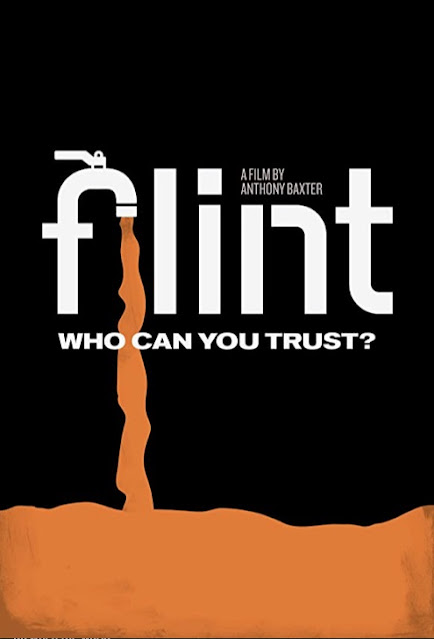Described as 'the Silicon Valley of its day', Flint was once a thriving industrial city thanks to the motor industry that employed most of the residents. Now that the car manufacturers have largely deserted Michigan, Flint now has one of the highest poverty levels in the country; something that incoming Governor Rick Snyder hoped to change by drastic cost cutting across the region, including the decision to have Flint source its water supply from the local Flint River instead of the Great Lakes. A catastrophic move if ever there was one, the Flint residents were forced to drink and bathe in brown water that the powers that be claimed was completely safe, even after testing revealed it to have dangerous levels of iron, and the rates of stillbirth and infant mortality skyrocketing. Baxter and his team appear to have been on the ground in Flint since early on in the scandal, as locals are forced to buy gallons upon gallons of bottled water to consume and bathe in. Mothers show evidence that their children developed skin conditions from showering in the water they were told was okay to use, and even when Governor Snyder relented and the water was reverted back to the original Great Lakes supply, the damage done to the pipework infrastructure continued to poison Flint residents for years.
There's plenty of elements to this film that show Flint to be a microcosm of many of the issues that are plaguing America at the moment. During one of many protests of government buildings, Reverend Ira Edwards couldn't put it more clearly when he states, "You see what happens when you elect a businessman to run the state? He doesn't care about the people he hurts... he doesn't care about the lives he effects. Enough is enough". Chants of "No justice. No peace" and placards of 'Flint Lives Matter' from the BAME residents offering further evidence that not all people in America are considered equal. The issues shown here are many, and are documented with an eye for detail by Baxter and his team; however this does lead to the film having a lack of consistent focus. A balanced and level-headed account of what is understood to be the facts, Governor Snyder and his decision making abilities is pushed to one side whilst we follow the genuinely inspirational grass roots campaigning of Flint residents, and the efforts of two highest profile experts from Virginia Tech and Water Defense. There to test the supplies for Flint to ensure it can be safe to drink again, it turns into a complete soap opera as defections, uncomfortable revelations and threatened lawsuits (including against the filmmakers), for lack of a better term, muddy the waters.
The film has a strange relationship with celebrity, as Mark Ruffalo and his Water Defense charity appears in Flint, in what appears to be a genuine attempt to use his star power to make sure the issue is not forgotten, albeit (unbeknownst to Ruffalo) based on questionable science and research methods. Concurrently, the film is so enamoured by the involvement of Alec Baldwin as a (underused and arguably unnecessary) narrator, that it's prepared to change the course of its finale when, after seeing a rough cut of the film, Baldwin decides to increase his involvement and actually sets foot in Flint. It's a gallant attempt on the part of both men to try and highlight what is a serious issue, and perhaps this was an attempt by Baxter to add some sort of closure to proceedings that are far from over, but from a filmmaking point of view Baldwin's involvement in the production only adds another non-sequitur to what is already an over-long and over-stuffed narrative, and doesn't help to solidify any of the points raised in the film.
Every issue raised in this film is an important one that needs attention, and the continued mistreatment of the Flint residents is clear, but by trying to cover all of the issues in the 2 hour running time, Anthony Baxter's film struggles to wade through the narrative threads to deliver a stronger, cohesive argument. The most resonant element of the film, particularly now during the Covid-19 crisis, is seeing how the community sprang into action, as volunteers deliver bottled water supplies to other locals, and educate them on the unseen dangers of things they once took for granted. Were the film to have centred itself on these campaigners and protestors and not got bogged down in the minutiae of (real and bogus) test results, this could have been a more powerful statement about the community of Flint as a whole.
Verdict
3/5



No comments:
Post a Comment